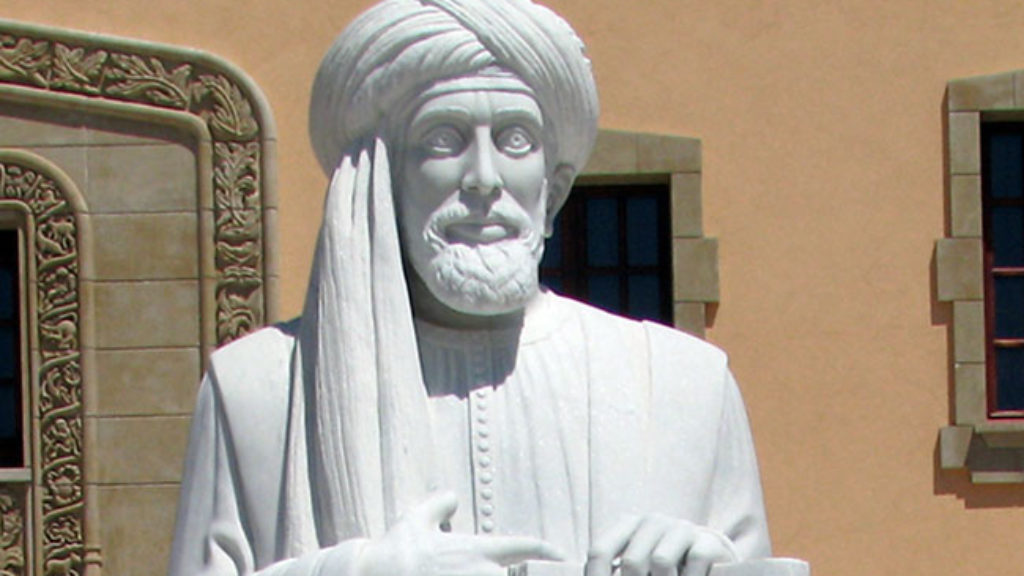The Sounds of Silence
John Gray’s latest book isn’t a field guide for spotting atheists. Rather, it’s something much more ambitious, if perhaps less useful: an indictment of much of the last several hundred years of atheist thinking for being, well, too much like monotheism.
Gray, a retired professor of philosophy at the London School of Economics, first came to popular attention with his book Straw Dogs, which argued that freedom and progress are illusory. He began his career as a more conventional political philosopher at Oxford, where he fell under the influence of Isaiah Berlin. Like Berlin, Gray was occupied with the question of why values seem to point us in different directions. Finding the various attempts to identify a principle by which to order them unsatisfactory, he concluded that our values conflict because there is no such principle. Berlin had arrived at a similar conclusion, but for him it was an argument for classical liberalism: Since there is no “right way” to choose between values, people should be more or less left alone. Gray’s conclusion was closer to nihilism: People will look for and fight over value, but they’ll never actually find it.
Now Gray, himself a nonbeliever, takes atheists to task for trying to convince themselves that the world is organized according to an intelligible principle—a proposition he believes they inherited from monotheism. He writes:
Contemporary atheism is a flight from a godless world. Life without any power that can secure order or some kind of ultimate justice is a frightening and for many an intolerable prospect. In the absence of such a power, human events could be finally chaotic, and no story could be told that satisfied the need for meaning. Struggling to escape this vision, atheists have looked for surrogates of the God they have cast aside.
The first five chapters of the book, each ostensibly on a different type of atheism, are devoted to attacking those God surrogates, which in Gray’s analysis end up being different versions of the same idea. The two remaining chapters discuss atheist worldviews that, according to Gray, own up to life’s chaos and lack of meaning. Writing about them, Gray gives the most complete account of his own beliefs (or lack thereof) found in this volume and draws heavily on two decidedly heterodox Jewish thinkers.
Gray insists that science (and thus atheism) does not suggest an ethical theory—there are no objective moral or political beliefs. Nor should religions be viewed as bad or primitive scientific theories. Rather than being a discredited explanatory theory of the physical world, religion is an attempt to find the meaning within it that science cannot. “Religion,” he insists, “is no more a primitive type of science than is art or poetry. The practice of religion expresses a need for meaning, which would remain unsatisfied even if everything could be explained.”
Those atheists who neglect this insight run the risk of thinking that because science can explain natural phenomena it can explain ethics or prescribe politics. Gray writes that, “With few exceptions, twenty-first-century atheists are unthinking liberals. But atheism has no specific political content, and many atheists have been virulently anti-liberal.” Proponents of so-called scientific ethics simply take on conventional values. Far from being benign, those conventional values have often been sinister: “Racism and anti-Semitism are not incidental defects in Enlightenment thinking. They flow from some of the Enlightenment’s central beliefs.” Science doesn’t necessarily lead to bigotry, but it doesn’t preclude it either.

Once science and its seemingly inevitable progress has been uncoupled from ethics, the idea of lasting ethical progress falls away. The conviction that humanity is making itself cumulatively and permanently better, Gray explains, is just a hangover from monotheism. First of all, there is no good reason to believe that such a thing as “humanity” exists at all. The multiplicity of cultures, beliefs, and projects speaks to the division of the species, not its unity. Moreover, the very idea of progress itself is incoherent:
The idea of progress is a mutant version of the Christian belief that human salvation is found in history, while modern revolutionary and liberal movements continue the faith in an end to history that inspired the teaching of Jesus. Partisans of revolution, reform and counter-revolution think they have left religion behind, when all they have done is renew it in shapes they fail to recognize.
In contrast, Gray insists that “history is going nowhere in particular.” While progress does not necessarily require an end point, it does require a direction. But to what, and from where? The notion that there is a direction to human affairs implies the existence of an Archimedean point from which our behavior might be evaluated. Just as monotheism holds that human activity is valuable in virtue of God’s existence, atheism believes that human activity is valuable in virtue of science, rationality, or some other God surrogate. For Gray, this is the ultimate chimera. Atheists no longer want to believe in God but cannot accept the fact that the world without Him is ultimately chaotic, so they invent gods by other names—or at least ideas that share with God the attribute of imbuing life with meaning.
One atheist who did not fall into this trap, according to Gray, was the early 20th-century Spanish American philosopher George Santayana. Santayana’s “disillusion proved liberating, since it allowed a view of the world from a perspective that did not expect salvation in history.” In coming to terms with “the godless flux of matter,” Santayana was able to achieve an almost transcendent freedom, and one that undermines faith in reason. If there were such a thing as progress, there would be something to try to understand. But if there is only the flux of matter, the ability to critically reflect has been vastly overrated. Gray writes:
[Rationalists] imagine that the right way of living can be found by the use of reason. But that is because they inherit a belief that the world is rational—the faith of Plato, of Christianity and secular humanism. If there is no order at the bottom of things, a self-examined life may hardly be worth living.
In essence, Gray says that life is incomprehensibly arbitrary, so it’s best to stop worrying about understanding it and focus on standing silently in the face of insoluble questions.
In his chapter titled “The Atheism of Silence,” Gray discusses two dissident Jews. One, unsurprisingly, is Spinoza. Spinoza begins his Ethics by arguing that God must exist, but, as Gray notes, Spinoza’s God is not that of revelation. The God that Spinoza argues for—Deus sive Natura, God or nature—only rules the universe in the sense that it is itself the governing set of rules that determine everything. This God has no more agency than you or I do, at least according to Gray:
But whether in God or in human beings, free will is an illusion. The world is a universal system in which everything is as it must be. Nothing is contingent, and there are no miracles. In such a world the only possible freedom is freedom of mind, which means understanding that things cannot be otherwise than they are.
Nothing can break free of the universe’s rules, not even God. Whether, in the final analysis, the universe is in arbitrary flux, as Santayana suggested, or perfectly determined, as Spinoza thought he had proved, nothing can be done to change it. Contingent or necessary, the cosmos is the way it is, and nothing we can do will move it forward or backward. Santayana found freedom when he saw the universe as a godless flux of matter, and Spinoza, as Gray puts it, in “submission to necessity.” Either way, freedom consists of realizing that the universe does not care for us.
Gray’s other Jewish “atheist of silence” is Lev Shestov. Shestov, who was born and educated in the Russian Empire and died in Paris in 1938, is in a sense Spinoza’s opposite. While Spinoza thought freedom is found in submitting to necessity, Shestov found freedom in transcending it. For Spinoza, God was the necessary condition of the universe, but Shestov believed that God was beyond necessity, “beyond all laws, whether of logic or ethics,” and hence accessible only by faith. Such a God is impossible to know.
Gray tells us that he groups Spinoza and Shestov together because they were both negative theologians, holding that God can only be described by what he is not: God is not an actor in this world and does not impart meaning to life or history. Whether the divine is a set of fully determined rules or the boundless possibility that lies beyond them, it offers no determinate, practicable way forward for us.
Seven Types of Atheism is a lucid and stunningly erudite book. Easily jumping from the great Western philosophers and early church fathers to Victorian scientists and contemporary TED talkers, Gray finds example after example to prove his point. Unfortunately, the point he tries to make is easy to misunderstand, and that’s partly Gray’s fault. His book is not a typology of atheism, as the title might suggest, but a polemic against the host of thinkers who believe they have successfully abandoned God when they have only replaced Him with substitutes.

Gray is certainly right, I think, that in an attempt to flee what for them would otherwise be a godless world, atheists often make the same sorts of metaphysical assumptions they criticize the religious for making. But his jeremiad against meaning is less devastating than he thinks. Let’s assume for a moment that the atheists of silence, with whom Gray identifies, are correct in that our ability to know God is severely limited. But does that undermine religion? Their great predecessor Maimonides didn’t think so: “We are only able to apprehend the fact that [God] is and cannot apprehend His [essence],” a proposition that would be agreed to by the first Lubavitcher Rebbe, not to speak of Meister Eckhart and many others. Gray’s jump from silent metaphysical humility to atheism ignores some of the most important religious thinking in several traditions.
But there’s another point to press here. Gray has argued that there is no objective source of meaning. Therefore, he says, religious and ethical statements are meaningless. But this, too, is an unwarranted leap. Just because one cannot justify one’s belief to a skeptic does not mean that it must be abandoned or even that it is unjustifiable. First of all, if one cannot objectively prove one’s beliefs, then one need not. No one is obliged to do what is impossible.
If this move sidesteps the problem, the alternative is to double down and embrace it. Even in a silent, unknowable world, faith is possible—not despite silence and skepticism, but because of them. This was the position of, among others, the late Rabbi Shimon Gershon Rosenberg, who has become increasingly influential in Israeli religious circles in the decade since his death in 2007.
After reviewing several midrashic passages that highlight Abraham’s uncertainty regarding God’s will with regard to the sacrifice of his son Isaac, Rabbi Rosenberg concluded that there was no way for Abraham to know what God wanted him to do. His trial—like ours—was to believe and to act in instances where belief and action could not be justified:
A conceited, all-knowing religious stance renders the trial, and with it the entire religious endeavor, a sham. The trial, along with a religious lifestyle and connection to God, can exist only in the context of a humble personality that is content in not knowing. . . . The trial will forever be associated with a subject who by nature is in the dark.
An inability to ground human meaning and religious faith might not mean they cannot be justified, only that they need not be.
Suggested Reading

The Ubiquitous Gabirol
Solomon ibn Gabirol plunges into poetry, writes S. Y. Agnon, medabek atzmo be-charuz: glued to his craft, beading words with devotion.

Zionisms Abound
Gil Troy and Allan Arkush on Troy’s new book, The Zionist Ideas.
From Moses to Moses to Sholem Aleichem
Anyone looking for a single-volume introduction to Jewish civilization for a class full of highly educated professionals with only a limited knowledge of the subject will find nothing better in print.
The Inklings
Leo Strauss may be as devastating as C. S. Lewis in his criticism of facile and destructive dogmas, but Hollywood isn’t planning a film version of Strauss’s Natural Right and History any time soon.
Comments
You must log in to comment Log In